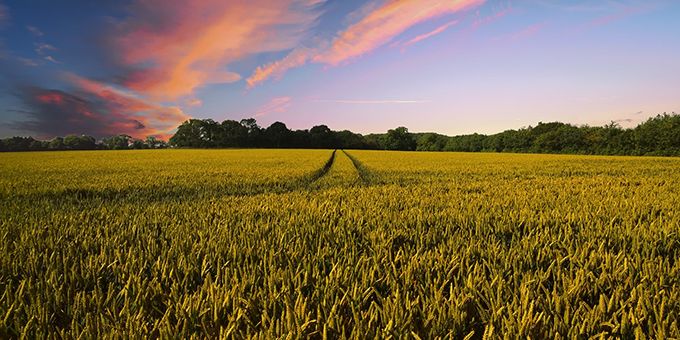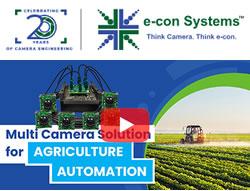Agriculture is a demanding and developing industry. One farming tractor can now do in a day what used to take 100 people, a week. While the industry is literally, reaping the benefits of demand, this does provoke concerns over pesticide use and soil health.
 Sowing a Precise Crop - How Micromotors Can Be Used in the Agricultural Industry
Sowing a Precise Crop - How Micromotors Can Be Used in the Agricultural Industry

Stewart Goulding, Managing Director | EMS Ltd
The agritech industry contributes £14 billion to the UK economy and employs over 500,000 people. However, the role of the agritech worker is evolving as there are already many automated machines that help to increase productivity and take over laborious tasks, such as chicken feeding and bovine milking.
Damaging soil
To cope with the growing demand and increase productivity, agricultural machinery is becoming bigger — and heavier. While these machines offer many benefits to the agriculture industry, they can significantly affect the quality of soil and limit plant growth.
Heavy harvesting machines and tractors can cause soil compaction, which can significantly damage the health of the soil by restricting oxygen and nutrients and can subsequently hinder plant development.
Furthermore, while crop protection from is vital, biocides, herbicides and pesticides can all affect soil and plant health. These chemicals can also be harmful to the environment as well as human health, meaning the industry is being encouraged to minimise its use of these products.
Farming robots
These issues are making way for new technology that is smaller and lighter, including robots that crawl fields to remove and kill weeds. Rather than using a sprayer to mass spray the crops, these robots use sensors and vision systems to identify, select and spray weeds directly with pesticides. Selective distribution of pesticides allows farmers to target weeds more accurately, reduce pesticide use and avoid soil compaction.
However, to make these robots as effective as possible, particularly when deployed out in vast fields of crops, they need to be powered by motors that are small, precise and have a high power to weight ratio.
Small motors, including FAULHABER DC micromotors that start from 1.9 millimetres (mm) in diameter are ideal for agritech robot applications. Tiny motors like these allow smaller robots to manoeuvre delicately between rows of crops in comparison to larger machinery and equipment.
The unique size of FAULHABER motors also helps to contribute to the crucial lightweight that is needed for the weed killing robots. Motors for this application must have a high power to weight ratio to ensure that the total weight of the robot is kept light and will not cause soil compaction. Furthermore, the motors must be powerful enough to endure the weeding process across a large area of field, without becoming fatigued or needing regular maintenance.
Although large machinery has been used for many years, its weight can reduce soil health and quality of the crop. By using lighter machinery for the process of weeding allows farmers to reduce the use of harmful pesticides, reduce soil compaction and improve overall crop health. Among these benefits, the choice of motor used in farming robots can make a significant difference to its overall performance — helping the industry to continue to reap what they sow.
The content & opinions in this article are the author’s and do not necessarily represent the views of AgriTechTomorrow
Comments (0)
This post does not have any comments. Be the first to leave a comment below.
Featured Product

